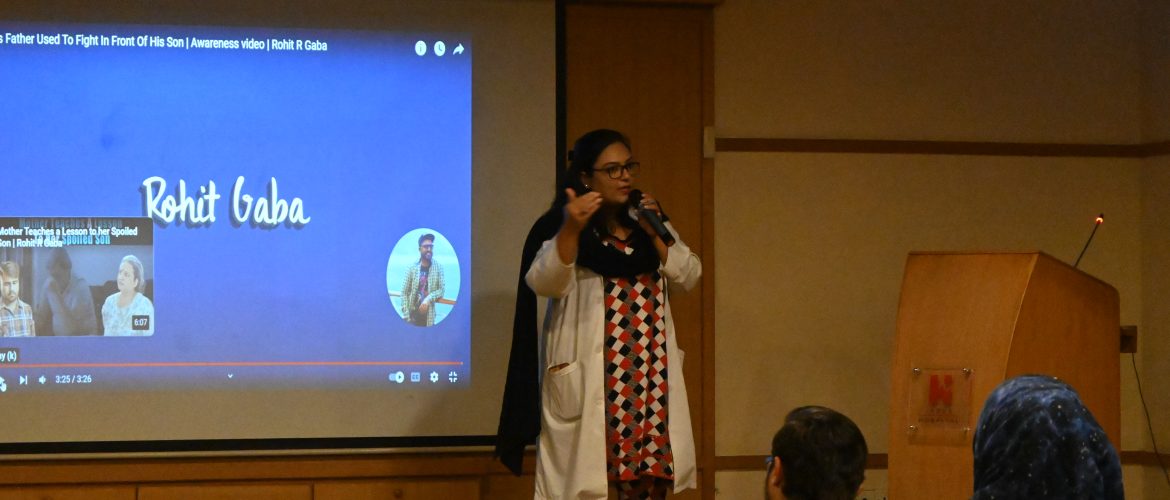Maternal Mental Health – Ehsaas Ka Safar 2.0
Hosted by Indus Hospital & Health Network’s (IHHN) Cochlear Implant Program, Ehsaas Ka Safar 2.0 – a parental training series – recently held its third session on November 22, 2022. Led by the ENT department’s Psychologist, Ms. Humaira Kaleem, the session educated the parents of children with Cochlear Implant on Maternal Mental Health and its influence on a child’s behavior.
Background:
According to research, maternal mental health has a great influence on a child’s behavior. However, it is usually neglected due to various social and familial responsibilities a mother has to adhere to. Maternal mental health challenges usually occur in the Antenatal period (before birth) and post-partum period (at least after 1 year of birth), and often compromise anxiety, depression, and in extreme cases, manic attacks and suicidal attempts.
A child’s behavior is significantly dependent on the interactions they have with their parents. Specific types of parental attitudes have been identified that can lead to characteristic maladaptive behavior in their children. For example, overprotective and dominant mothers might have shy, submissive, and anxious children, while overindulgent ones might have aggressive, demanding children prone to temper tantrums.
While working with patients from various socio-economic backgrounds, the Cochlear Implant Program at IHHN discovered a need for a Parental Training Workshop Series, as parents must work with their children at home to ensure their ongoing development. To meet this need, the program started Ehsaas Ka Safar 2.0, a monthly series of training workshops to teach parents effective management techniques. The series is sponsored by Oriental Sales Cooperation.
Session Activities:
During the session, five risk factors with examples were discussed:
- Socio-Economic Disadvantage – poverty, unemployment, a religious minority.
- Family & Social Relationship – Abuse or violence by the partner, a higher number of children, challenging joint family system.
- Reproductive and General Health – unwanted/unplanned pregnancy, past pregnancy loss or child-birth traumas.
- History of Mental health conditions – prior episodes of depression and anxiety.
- Infant Characteristics – gender of the baby, a child who cries a lot, difficulty in latching, physical long-term illness of the child.
During the session, both sets of parents were educated on how their influences and interpersonal attitudes affect their child’s well-being. Attending fathers were made to understand their potential contributions to conflicting factors in their homes. To gauge the maternal mental health of attendees, question/answer rating scales were conducted.




